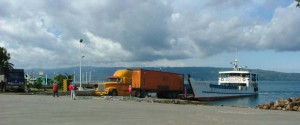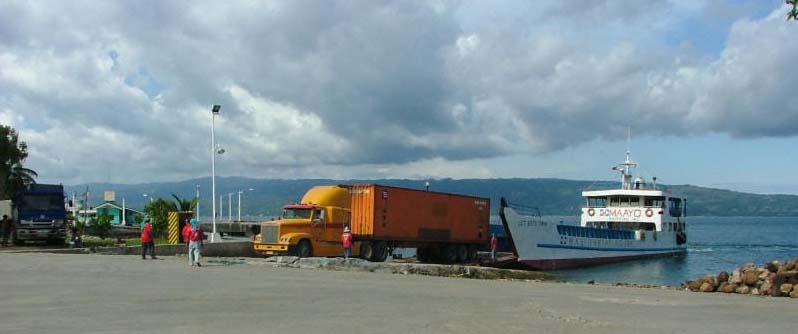 PHILIPPINE business and the academe called the attention of government again to address the conflict of interest in the powers of the Philippine Port Authority (PPA).
PHILIPPINE business and the academe called the attention of government again to address the conflict of interest in the powers of the Philippine Port Authority (PPA).
Meneleo Carlos, chairman of the Export Development Council (EDC) Networking Committee on Transportation and Logistics, said in a recent meeting that the PPA should divest itself of its developmental function so as not to influence its regulatory mandate.
At the heart of the issue is Letter of Instruction (LOI) 1005-A signed in 1980 by then President Ferdinand E. Marcos which allows PPA to get a 20% share in the cargo-handling income of ports it manages.
The PPA, as a result, exhibited “ease and facilitation” in allowing increases in port fees to the detriment of users, observed the private sector.
Income from these fees is also seen as the reason why there appears to be an “unseen barrier” in the establishment of ports by the private sector, noted Henry Basilio, committee vice chairman.
He cited the case of Harbour Centre in Manila, a private commercially-operated port, which was not given the permit to handle foreign containerized cargoes because it will apparently compete with ports run by the PPA.
“Does the regulator want to regulate?” Basilio asked.
The long-term answer to the conflicting PPA interests, he added, is the amendment of the PPA Charter, although the LOI can already be rescinded by an executive order. “The process of legislative amendment will take a long time,” he pointed out.
Meanwhile, if at all, increases in port fees should be tied to efficiency, said Jet Ambalada of Iris Logistics, Inc, a 100% Filipino-owned company that provides a range of logistics services.
“Our ports operate at 20 crane moves per hour now. Port fee increases can perhaps be justified if say, the productivity or efficiency reaches 30 to 35 moves an hour, something close to what other foreign ports are achieving,” said Ambalada.
Carlos, however, noted that an “archipelagic, maritime country like the Philippines with unlimited port possibilities” should have no port regulation for commercial purposes, except to address safety issues.
“PD 857 (Revised Charter of the PPA) has served its purpose. But we are now in a market economy which calls for less regulation,” he stressed.
In order to push efficiency, Carlos likewise recommended that government facilitate the development of smaller ports for domestic use instead of building “giant” ports.
“Why build giant ports and burden the users with high fees and transhipment costs as they traverse poor roads, when it is more economical to have small ports that directly lead to the markets?” he asked.
Ambalada clarified that bigger ports are useful for international cargoes even as he reiterated the urgent need to shift cargoes from ports in Manila to Subic and Batangas ports.
Providing further infrastructure support for cargo and passenger movement to Subic and Batangas ports is the development of the South Luzon Expressway, North Luzon Expressway and the Subic Clark Tarlac Expressway, Basilio noted.
“All ports and road networks in Manila have already exceeded their capacity by three times two years ago. This is why we do not encourage any more developments, reclamations or incentives there,” Ambalada explained. “The problem, however, is that private sector port operators in Manila have existing contracts with the PPA, with provisions for long-term development plans.”
MCC Transport service in Batangas
In the meantime, he expressed satisfaction over MCC Transport’s weekly call at Batangas port. MCC carries mostly cargoes from Nestle Philippines which has factories in Cabuyao, Laguna and can easily fill a vessel, said Ambalada. He added Nestle has already committed to ship out of Batangas port.
Other companies in Calamba, Laguna, Batangas, Rizal and Quezon (Calabarzon) where 70% of Philippine Export Zone Authority locators are based, are still in a wait-and-see stance, he noted.
“Batangas port is a given and not a choice, considering the congestion in Manila,” Ambalada added.
“What is needed now is the policy for the shift. This can either come as market-driven incentives like dropping fees and rates in both ports, or an executive fiat mandating that all cargoes from the North should use Subic Port, while those from the South should go through Batangas port,” said Basilio.
The private sector also cautioned against moves towards privatization and centralization, as these could lead to monopolies.





